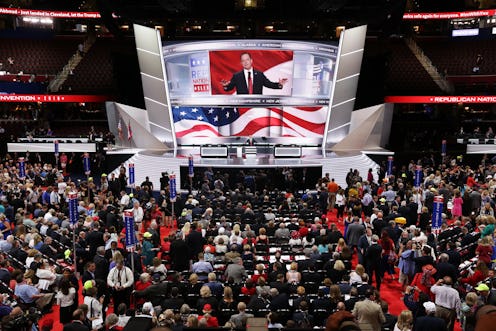
On Monday, Never Trump Republicans tried to force a roll call vote on the proposed rules at the Republican National Convention in Cleveland, but party leaders blocked their move. In order to prevent Donald Trump from becoming their party's nominee, anti-Trump forces wanted to change the rules so that delegates would no longer be bound to vote based on the outcomes of their states' primaries. But after two voice votes, presiding official Rep. Steve Womack announced that the rules had been approved. Womack added that three of the nine states which had asked for a roll call vote had withdrawn their commitments.
In the past several decades, roll call votes have become less common, because the primaries and caucuses have played a greater role in deciding who a party's presidential nominee will be. A significant roll call vote in recent history that comes to mind took place at the 2008 Democratic National Convention, when states were called up one at a time to announce how many votes they would cast for then-Senators Barack Obama and Hillary Clinton. Before the roll call was completed, however, Clinton moved to end the vote so that Obama could receive the nomination.
Despite recently endorsing Clinton, Vermont Sen. Bernie Sanders has not suspended his campaign, and in a recent conference call, he reportedly asked his delegates to turn out for a potential roll call vote during this year's DNC in order to make sure that their voices are heard.
There are some years when there are no roll call votes at all, but when they do occur, they tend to stir up quite a bit of controversy. Back in 1924, for example, a series of roll call votes caused that year's Democratic National Convention to last 17 days, making it the longest in history. There were 103 roll call votes due to competing rural and urban interests — especially pertaining to topics like the Ku Klux Klan — after which John Davis won the nomination.
Roll call votes can be used to highlight party divisions, something that party leaders typically wish to avoid. In the case of the Never Trump Republicans, for instance, the Trump campaign and party leaders wanted to maintain an image of unity during the convention, but Trump critics wanted the divisions over the potential nominee to be as high-profile as possible.
Image: Getty Images (1)